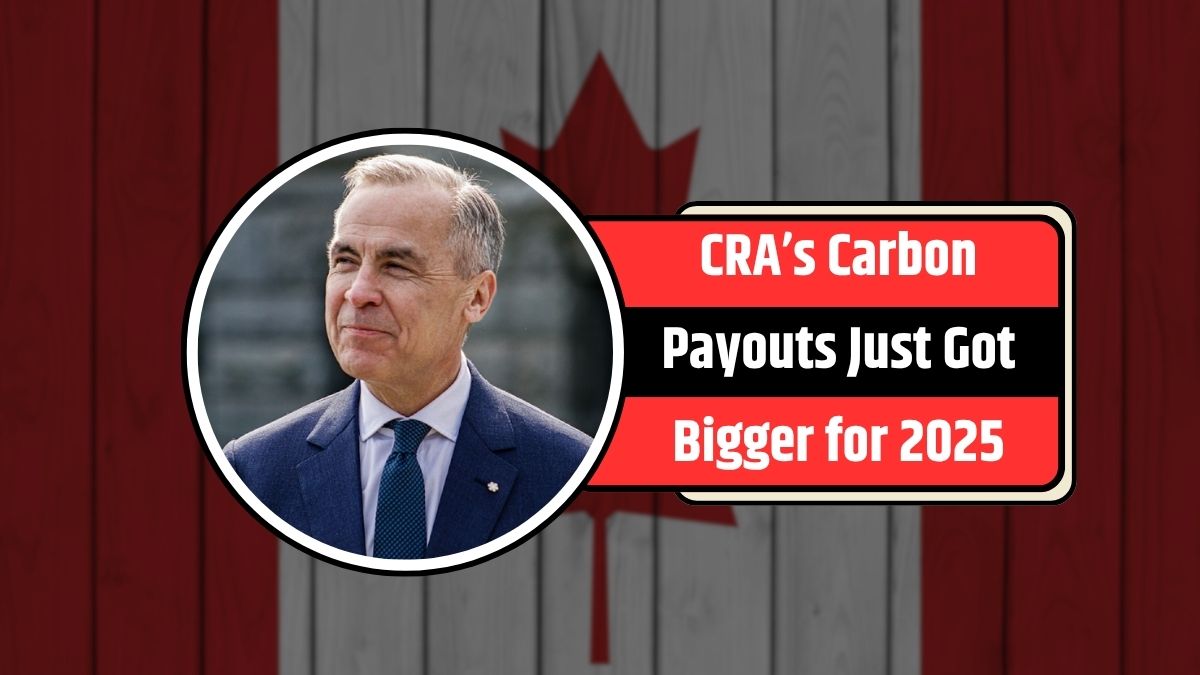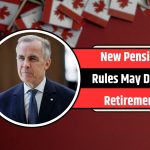Millions of Canadians are now seeing higher climate payments hit their bank accounts, thanks to the enhanced Canada Carbon Rebate (CCR) for 2025. This federally-backed program is designed to return money directly to households to offset the impact of carbon pricing, especially as fuel and energy costs continue to rise.
Issued quarterly through the Canada Revenue Agency (CRA), these non-taxable rebates help individuals and families manage higher utility bills while encouraging greener energy use across the country.
What’s New in the 2025 Carbon Rebate?
To respond to public concerns and increasing carbon costs, the federal government introduced several important updates to the program this year.
Here are the key 2025 reforms:
- Larger quarterly rebate amounts based on province and family size
- No application required—payments are issued automatically
- Eligibility tied to your 2024 tax return
- Payments adjusted for the increased carbon price of $95 per tonne (effective April 2025)
- A new 20% rural supplement for households outside major cities
The government’s goal is to ensure that low- and middle-income households aren’t unfairly affected by climate policies. The Canada Carbon Rebate (formerly known as Climate Action Incentive) has now evolved into a more responsive and inclusive program.
How Much Will You Receive in 2025? (Quarterly Rebate Amounts)
The exact rebate amount depends on your province, marital status, and family size. If you live in a rural area, you’ll receive an additional 20% supplement, automatically applied based on your postal code.
Here’s a breakdown of quarterly rebate amounts by province:
| Province | Individual | Couple | Family of 4 | Rural Supplement |
|---|---|---|---|---|
| Alberta | $140 | $210 | $280 | +20% |
| Saskatchewan | $130 | $195 | $260 | +20% |
| Manitoba | $120 | $180 | $240 | +20% |
| Ontario | $110 | $165 | $220 | +20% |
| Newfoundland | $105 | $157 | $210 | +20% |
| Nova Scotia | $100 | $150 | $200 | +20% |
If you’re eligible, these amounts are deposited automatically every quarter into your bank account.
When Will You Receive Your 2025 Carbon Rebate?
The Canada Carbon Rebate is distributed four times a year. Payments show up as “Climate Action Incentive” (CAIP) on your bank statement.
Payment schedule for 2025–2026:
- July 2025
- October 2025
- January 2026
- April 2026
To ensure timely payments, check that your direct deposit details are current with the CRA.
Who Is Eligible for the Carbon Rebate?
To qualify for the 2025 Canada Carbon Rebate, you must:
- Be a resident of a participating province
- File your 2024 income tax return
- Meet residency and postal code criteria set by the CRA
No separate application is necessary. Once your taxes are filed, the CRA assesses eligibility and deposits the payment automatically.
If you’re a newcomer to Canada, you may also qualify if you meet standard residency requirements.
How Does the Rural Supplement Work?
The 20% rural top-up was introduced to support Canadians living in remote or non-urban areas, where public transit is limited and driving long distances is more common.
If your postal code falls under the CRA’s rural classification, you’ll automatically receive the 20% supplement on top of your regular rebate amount.
There’s no paperwork or manual request involved.
For example:
- A family of four in Alberta receives $280 per quarter.
- If eligible for the rural supplement, they’ll receive an extra $56, bringing the total to $336 per quarter, or $1,344 per year.
The Impact of the Rebate on Canadian Households
At a time when inflation and energy prices are increasing, the Canada Carbon Rebate delivers tangible relief. For many Canadians, especially low- and middle-income families, this rebate actually returns more money than they pay in carbon-related costs.
According to a report by the Parliamentary Budget Officer, about 80% of households in participating provinces receive more through the rebate than they spend on carbon taxes.
The money can help cover:
- Electricity and heating bills
- Grocery and transportation expenses
- Unexpected energy-related costs
The rebate also ensures that climate responsibility doesn’t come at the cost of financial hardship for everyday Canadians.
Why the Canada Carbon Rebate Matters
Beyond the money, the Canada Carbon Rebate plays a critical role in the nation’s climate strategy.
Here’s why it’s important:
- Supports the “polluter pays” principle, holding major emitters accountable
- Encourages lower carbon consumption without punishing families
- Maintains fairness by offering targeted financial relief
- Helps Canada stay on track with emissions reduction goals
By pairing carbon pricing with household rebates, the system creates an incentive for cleaner energy use while protecting consumers from financial strain.
How to Make Sure You Get Your Rebate
Receiving the rebate is simple—just make sure you:
- File your 2024 income taxes
- Have up-to-date banking or mailing information with CRA
- Check for quarterly CAIP deposits in your bank account
Everything is managed by the CRA using your tax return and postal code. If you’re eligible, you won’t need to take any further action.
FAQs
Q1. When is the next rebate payment due?
The next carbon rebate payment will be issued in October 2025.
Q2. Do I need to apply for the rebate?
No. As long as you file your 2024 income taxes, the CRA will process your payment automatically.
Q3. What is the rural supplement?
A 20% bonus added to your rebate if you live in a rural or remote area, based on postal code.
Q4. How will I receive the rebate?
Through direct deposit or cheque, listed as “Climate Action Incentive” on your statement.
Q5. Who qualifies for the rebate?
Residents of eligible provinces who have filed their taxes and meet residency criteria.











